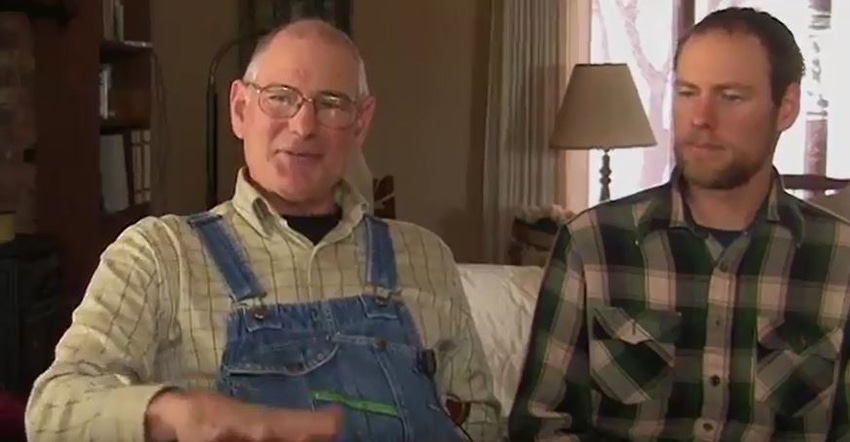February 1, 2017

Once you decide where small grains fit best into your crop rotation and choose a variety, it’s time to plant. Planting population is one of the most important things for farmers new to growing small grains to think about. In Iowa, most farmers talk about small grains seeding rates in terms of “pounds per acre” or “bushels per acre.” However, the number of seeds in a given pound of grain can vary significantly in small grains, meaning that one bushel of oats may have quite a few more or less seeds than another.
In this week’s video episode, “Planting I: Calibrate to Populate,” David Weisberger, a student in Iowa State University’s Graduate Program for Sustainable Agriculture, shares his on-farm research with Practical Farmers of Iowa members focused on oat planting population and explains why it’s important to calibrate your grain drill.
It pays to know exactly how many seeds you plant
Weisberger has interviewed dozens of farmers who grow small grains, and says that knowing exactly how many seeds you plant means that you can make management decisions with more accuracy when comparing yields over multiple years. Comparing year to year results for help with variety selection is one example.
“When it comes to seeing management effects on test weight and yield, you want to be comparing apples to apples, not apples to oranges,” he says
Video shows how to properly calibrate a grain drill
Also in the video, Wade Dooley, who farms near Albion in central Iowa, demonstrates how to calibrate a drill. He’s been growing oats and rye for cover crop seed for the last few years, and says that calibrating your drill is just a common sense thing that you need to do before planting. “You wouldn’t go out and plant corn or beans without making sure your planter is behaving properly,” he says, “so we should be doing the same with small grains.”
To learn more about small grains production in Iowa, check out Practical Farmers of Iowa’s small grains page. There, you can find research reports, production manuals, articles, blogs, conference presentations and more.
Editor’s Note: Ohde is the research and media coordinator for Practical Farmers of Iowa in Ames.
About the Author(s)
You May Also Like






